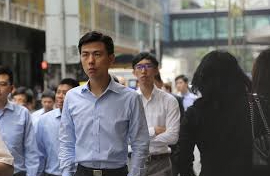When Katie Lam was deciding what to study back in 2018, she thought that a Law degree would open the most doors in a future career. She was overjoyed to be accepted into her chosen subject at the Chinese University of Hong Kong.
Almost six years on, the outlook in the city has soured with top tier firms closing, foreign lawyers leaving and, according to recruiters, fewer trainees being retained. While Lam, 23, managed to secure work as a paralegal, an increasing number of graduates appear to be dropping out of the profession altogether.
A prolonged dearth of large initial public offerings and mergers and acquisitions, as well as the economic downturn in China have dried up a key source of revenue for law firms in Hong Kong. In addition, unease about data privacy and China’s tightening grip over the city have contributed to some firms shifting resources to Singapore. There are also concerns that national security legislation has undermined faith in the rule of law, further clouding the future.
The legal industry in Hong Kong is growing at the slowest pace in a decade. At the Law Society, which solicitors are required to join, membership grew by only 90 in 2023, down 83% from an increase of 532 members in 2020.
At least 16 law firms have left or shut down since 2020 after steady growth in the previous few years, including Philadelphia-founded Dechert LLP and Chicago-based Winston & Strawn LLP. DLA Piper LLP, one of the largest law firms in the world, has cut its office space, while Mayer Brown LLP was preparing to split off its Hong Kong operation, people familiar with the matter said earlier this year.
“Hong Kong’s status as a legal hub has changed significantly,” said Richard Cullen, an adjunct professor in the Faculty of Law at the University of Hong Kong. “It is caught in the crosshairs of an aggressive campaign by the United States and other Western powers trying to contain China, with the National Security Law becoming a focus.”
The Hong Kong government said in June there’s no truth that the city’s courts are under any political pressure from Chinese central authorities or the hub’s government in the adjudication of national security cases.




